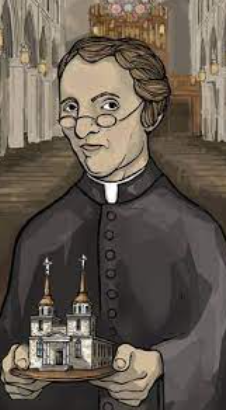In the annals of Detroit’s history, few figures stand as prominently as Father Gabriel Richard, a man whose impact on the burgeoning city in the early 19th century remains indelible. Born in 1767 in France, Father Richard’s journey led him to become a Catholic priest, educator, and a vital force in the development of Detroit. His multifaceted contributions spanned religious, educational, and civic realms, earning him a lasting legacy as one of Detroit’s most influential early leaders.
Father Richard arrived in Detroit in 1798, at a time when the city was transitioning from a frontier outpost to a burgeoning urban center. His arrival coincided with the needs of a growing population, and he quickly became a spiritual beacon for the community. As the first Catholic priest in Detroit, Father Richard played a pivotal role in establishing and nurturing the Catholic Church in the region, providing spiritual guidance and support to the diverse residents of the city.
Education was another cornerstone of Father Richard’s impact on Detroit. Recognizing the importance of knowledge in fostering a thriving community, he founded the first school in Detroit in 1804. His commitment to education extended beyond the walls of the classroom, as he actively promoted the dissemination of knowledge through various publications. Father Richard’s efforts laid the groundwork for the development of Detroit’s educational infrastructure, leaving an enduring mark on the city’s intellectual landscape.
Father Richard’s influence was not limited to religious and educational spheres; he was also a prominent civic leader. Serving as a territorial delegate in the United States Congress from 1823 to 1825, he tirelessly advocated for the interests of the Michigan Territory. His efforts were instrumental in securing federal support for infrastructure projects, including the construction of roads and canals, which played a crucial role in Detroit’s economic development.
Beyond his official roles, Father Gabriel Richard’s humanitarian efforts during the 1805 fire that devastated Detroit underscored his commitment to the welfare of the community. As a founding member of the Catholepistemiad of Michigan (later known as the University of Michigan), he continued to champion education and intellectual pursuits.
In conclusion, Father Gabriel Richard emerged as a multifaceted leader who significantly shaped the early development of Detroit. His contributions to religion, education, and civic life laid the foundation for the city’s growth and prosperity. Father Richard’s legacy endures as a testament to the transformative power of visionary leadership and a deep commitment to the well-being of a community.


